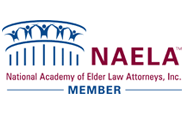Excerpts from the Illinois Powers of Attorney for Health Care Law
§ 4-5. Limitations on health care agencies. Neither the attending physician nor any other health care provider or health care professional may act as agent under a health care agency; however, a person who is not administering health care to the patient may act as health care agent for the patient even though the person is a physician or otherwise licensed, certified, authorized, or permitted by law to administer health care in the ordinary course of business or the practice of a profession.
§ 4-6. Revocation and amendment of health care agencies.
(a) Unless the principal elects a delayed revocation period pursuant to subsection (a-5), every health care agency may be revoked by the principal at any time, without regard to the principal's mental or physical condition, by any of the following methods:
1. By being obliterated, burnt, torn or otherwise destroyed or defaced in a manner indicating intention to revoke;
2. By a written revocation of the agency signed and dated by the principal or person acting at the direction of the principal, regardless of whether the written revocation is in an electronic or hard copy format;
3. By an oral or any other expression of the intent to revoke the agency in the presence of a witness 18 years of age or older who signs and dates a writing confirming that such expression of intent was made; or
4. For an electronic health care agency, by deleting in a manner indicating the intention to revoke. An electronic health care agency may be revoked electronically using a generic, technology-neutral system in which each user is assigned a unique identifier that is securely maintained and in a manner that meets the regulatory requirements for a digital or electronic signature. Compliance with the standards defined in the Uniform Electronic Transactions Act or the implementing rules of the Hospital Licensing Act for medical record entry authentication for author validation of the documentation, content accuracy, and completeness meets this standard.
(a-5) A principal may elect a 30-day delay of the revocation of the principal's health care agency. If a principal makes this election, the principal's revocation shall be delayed for 30 days after the principal communicates his or her intent to revoke.
(b) Every health care agency may be amended at any time by a written amendment signed and dated by the principal or person acting at the direction of the principal.
(c) Any person, other than the agent, to whom a revocation or amendment is communicated or delivered shall make all reasonable efforts to inform the agent of that fact as promptly as possible.
§ 4-9. Penalties. All persons shall be subject to the following sanctions in relation to health care agencies, in addition to all other sanctions applicable under any other law or rule of professional conduct:
(a) Any person shall be civilly liable who, without the principal's consent: (i) wilfully conceals, cancels, or alters a health care agency or any amendment or revocation of the agency; (ii) falsifies or forges a health care agency, amendment, or revocation; or (iii) enters information in an electronic system under the persona of the principal.
(b) A person who falsifies or forges a health care agency, enters information in an electronic system under the persona of the principal, or wilfully conceals or withholds personal knowledge of an amendment or revocation of a health care agency with the intent to cause a withholding or withdrawal of life-sustaining or death-delaying procedures contrary to the intent of the principal and thereby, because of such act, directly causes life-sustaining or death-delaying procedures to be withheld or withdrawn and death to the patient to be hastened shall be subject to prosecution for involuntary manslaughter.
(c) Any person who requires or prevents execution of a health care agency as a condition of insuring or providing any type of health care services to the patient shall be civilly liable and guilty of a Class A misdemeanor.
§ 4-10. Statutory short form power of attorney for health care.
[Paragraph (a) specifies the execution requirements for a health care power of attorney, and paragraph (b) sets out the form of the statutory health care power that is reproduced on the face of this form.]
(c) The statutory short form power of attorney for health care (the "statutory health care power") authorizes the agent to make any and all health care decisions on behalf of the principal which the principal could make if present and under no disability, subject to any limitations on the granted powers that appear on the face of the form, to be exercised in such manner as the agent deems consistent with the intent and desires of the principal. The agent will be under no duty to exercise granted powers or to assume control of or responsibility for the principal's health care; but when granted powers are exercised, the agent will be required to use due care to act for the benefit of the principal in accordance with the terms of the statutory health care power and will be liable for negligent exercise. The agent may act in person or through others reasonably employed by the agent for that purpose but may not delegate authority to make health care decisions. The agent may sign and deliver all instruments, negotiate and enter into all agreements, and do all other acts reasonably necessary to implement the exercise of the powers granted to the agent. Without limiting the generality of the foregoing, the statutory health care power shall include the following powers, subject to any limitations appearing on the face of the form:
(1) The agent is authorized to give consent to and authorize or refuse, or to withhold or withdraw consent to, any and all types of medical care, treatment, or procedures relating to the physical or mental health of the principal, including any medication program, surgical procedures, life-sustaining treatment, or provision of food and fluids for the principal.
(2) The agent is authorized to admit the principal to or discharge the principal from any and all types of hospitals, institutions, homes, residential or nursing facilities, treatment centers, and other health care institutions providing personal care or treatment for any type of physical or mental condition. The agent shall have the same right to visit the principal in the hospital or other institution as is granted to a spouse or adult child of the principal, any rule of the institution to the contrary notwithstanding.
(3) The agent is authorized to contract for any and all types of health care services and facilities in the name of and on behalf of the principal and to bind the principal to pay for all such services and facilities, and to have and exercise those powers over the principal's property as are authorized under the statutory property power, to the extent the agent deems necessary to pay health care costs; and the agent shall not be personally liable for any services or care contracted for on behalf of the principal.
(4) At the principal's expense and subject to reasonable rules of the health care provider to prevent disruption of the principal's health care, the agent shall have the same right the principal has to examine and copy and consent to disclosure of all the principal's medical records that the agent deems relevant to the exercise of the agent's powers, whether the records relate to mental health or any other medical condition and whether they are in the possession of or maintained by any physician, psychiatrist, psychologist, therapist, hospital, nursing home, or other health care provider. The authority under this paragraph (4) applies to any information governed by the Health Insurance Portability and Accountability Act of 1996 ("HIPAA") and regulations thereunder. The agent serves as the principal's personal representative, as that term is defined under HIPAA and regulations thereunder.
(5) The agent is authorized: to direct that an autopsy be made pursuant to Section 2 of the Autopsy Act; to make a disposition of any part or all of the principal's body pursuant to the Illinois Anatomical Gift Act, as now or hereafter amended; and to direct the disposition of the principal's remains.
(6) At any time during which there is no executor or administrator appointed for the principal's estate, the agent is authorized to continue to pursue an application or appeal for government benefits if those benefits were applied for during the life of the principal.
Do Not Apply For Medicaid Until You Call MePlease schedule an appointment with me to review your Medicaid application. Applications are confusing and when reviewed by an attorney, may be approved sooner. |













 630-668-6600
630-668-6600

